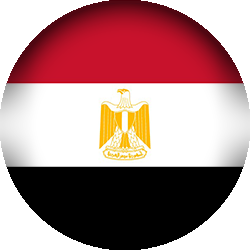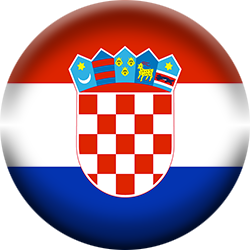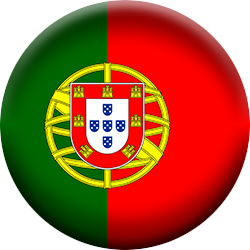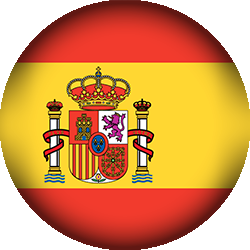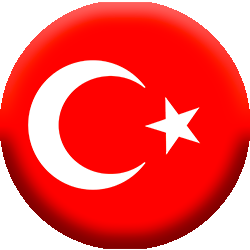
who we are
We are women and men, militants and intellectuals, activists, artists and researchers from different social and cultural backgrounds and nations around the Mediterranean, who believe that the Mediterranean is our common destiny. Since September 2014, we have gathered through SABIRMAYDAN, a grassroots process conceived during a series of events – a forum at the last three editions of SABIRFEST, and the 2015 World Social Forum – focusing on the concept of transnational citizenship in the Mediterranean. SABIRMAYDAN aims at promoting a civil society network of committed organisations and individuals who envision Mediterranean integration through citizens’ initiatives and tools. We have decided to engage in drafting a constitutive statement describing the Mediterranean we want to see in the near future, the “Manifesto for Mediterranean Citizenship”.
toward the manifesto
The Manifesto, as we intend it, is a charter expressing principles and values that define a new concept of citizenship and belonging in the region. It would also like to be a matrix inspiring actions aiming at facilitating dialogue and debate in the Mediterranean basin, in order to build a space whose main features are integration, social justice, environmental justice, participatory democracy, social and economic solidarity, peace and mutual understanding.
This Manifesto shall be finalised through a wide consultative citizens-driven process in the region. This is why we are here presenting what we have called a “pre-Manifesto”, an easily accessible short text focusing on the main principles we want to defend and develop throughout the consultation process.
The “pre-Manifesto” will be discussed within the SABIRMAYDAN community, and then it will be presented to the public at SABIRFEST 2017. After the event, a regional public consultation will be launched, aiming at producing a more elaborate political and advocacy-related paper, what we would name the “Manifesto for Mediterranean Citizenship”.
The editorial committee is composed of: Fatima AL-IDRISSI, Said BAKKALY, Debora DEL PISTOIA, Mohamed LEGHTAS, Lidia LO SCHIAVO, Gianluca SOLERA, Igor STIKS, Nagwan AL-ASHWAL, Kais ZRIBA..
where we are
In the last decade, Mediterranean nations and territories have been at the core of several social struggles. However, the demands of those who massively protested against the old regimes of the region, as well as against unjust socio-economic systems and austerity measures, have often been betrayed, and the lack of opportunities and vision on both shores has widened the divide between institutions and young people, who have lost confidence in their political system and feel deprived of their own future.
The crisis has also exacerbated the stigmatisation of migrants, whose flows have increased due to the civil wars in Libya and Syria, and the deteriorating conditions in many African states. On the other hand, many political and social groups and individuals are redefining themselves around identity-based entities, inspired by nationalism, authoritarianism, religion and cultural homogeneity, or are seeking their own personal and social redemption through armed struggle. This situation is challenging cooperation, the concept of citizenship itself, and the idea of cultural and geographical belonging in the region.
As women and men of the Mediterranean, tied to human rights and social justice, concerned about the cultural and environmental heritage of the region, and committed to a shared Mediterranean future:
A. We have learned from the good and bad lessons of the uprisings and social protests – which started against austerity policies, the commodification of public resources and the decline of social rights in many European countries, affected most of the southern shore of the Mediterranean, and eventually spread over the rest of the region – and have looked with interest at new political groupings, whose platforms are based on the 2008 anti-austerity movements and the claims of the revolutionary movements of 2011;
B. We are inspired by the 1941 Manifesto of Ventotene, written by a group of anti-fascist militants and intellectuals, whose objective was a free and united Europe; the Manifesto of Ventotene provided a source of inspiration for European peoples fighting against Fascism and Nazism in conceiving the European integration project;
C. We look to the Porto Alegre Charter, the founding text of the World Social Forum, which has stimulated the rise of strong social movements and civil societies in the region, and constitutes the platform of the alter-globalisation movement, fighting against economic exploitation and colonialism.
what we believe in
With this document, we want to launch a citizen-driven debate on the future of the Mediterranean starting from the following considerations:
1. The crossroad of humanity The Mediterranean has given birth to languages, religions, philosophical systems and scientific disciplines which have nurtured the civilisations developed in the region over the course of history. It has represented the privileged space where the cultures of the peoples of the Near East, North Africa and Southern Europe could enter in contact, mix and amalgamate. It is indeed the cradle of the first urban societies in the East, the Greco-Roman, Judeo-Christian and Muslim civilisations, of enlightening periods such as the Renaissance, and where cosmopolitan cities like Alexandria, Tangier, Constantinople/Istanbul, Thessaloniki and Dubrovnik were born. The Mediterranean is a crossroads, where for millennia everything has merged, enriching it: men, animals, goods, ships, ideas, religions, lifestyles, and even plants. It has found its specificity in the balance, being neither too hot nor too cold, in mitigating and mixing again, in transforming opposing poles into points of intersection, in producing beauty from the combination of different forms of dwelling, socialisation and creation, and in circumventing the disasters surrounding them. Any narrative based on the concepts of irreconcilability and incompatibility between nations and cultures can be easily challenged when schools teach the history of the Mediterranean as a crossroads, cultural scenes explore it and institutions defend it.
2. A space of exchanges The Mediterranean is also the interface par excellence of economic and financial exchanges between the nations of the African, European and Asian continents. In this space, empires, kingdoms and republics built extraordinarily dynamic trans-national commercial networks, thus contributing to the circulation of goods and ideas. These exchanges have allowed for the transit of material and immaterial wealth between the various Mediterranean shores, and have contributed enormously to the economic, social and cultural development not only of the coastal regions and their continental neighbours, but also of the whole of humanity. This framework, even in times of war, led to remarkable advances in astronomy, medical sciences and mathematics; it favoured translation and the mutual enrichment of languages; and finally fostered new discoveries in agricultural practices and diet, textiles and the exploitation of precious metals. This is the Mediterranean we like to call to our minds today, because it has certainly not exhausted its potential for exchange. Cities are in particular the junctures of these exchange flows, multicultural and multilingual contexts where freedom of expression and creativity – when they are given a chance – can bring our mindsets out of the restrictive borders dictated by unquestioned dogmas and speculative interests. Claiming back our cities and defending their function as junctures of exchange is of the utmost importance. Mediterranean cities in fact provide a unique chance for practicing the Mediterranean citizenship we are seeking. On the one hand, they could allow involvement and cooperation based on residence (and not origins, religious or ethnic identity, or state citizenship). On the other hand, they could form associations amongst themselves and thus show a different citizenship model – the one based on direct cultural, social and political participation, urban democracy, and trans-urban solidarity – providing an opportunity for political redefinition and the enrichment of democracy, membership and identity. In times of economic crisis and cultural confrontation, trade and exchange of knowledge and commodities, urban partnerships as well as artistic creation and scientific research, are needed more than ever to promote a culture of peace, dignified living, mutual respect and social justice.
3. Mobility as a constitutive character Throughout history, the Mediterranean region has represented one of the most intense migration areas on earth. Human mobility is a constitutive element of Mediterranean civilisations. The recent combination of border closure policies with the absence of real alternatives to migration has, however, rendered human mobility in the region very dangerous. The legal and material barriers set up between the shores have not breached just the basic right to mobility; they have also encouraged a thriving illegal and inhuman border-crossing economy which has developed in the last twenty years, becoming the source of modern forms of slavery and exploitation. Countries like Morocco, Libya and Turkey, located along the southern and eastern Mediterranean fringes, have become transit spots, and the EU has assigned control functions to them. Immigrants there are regarded as criminals or competitors. On the other hand, Syrian refugees have turned into the most vulnerable group along the Mediterranean. Nonetheless, human mobility must always be an essential human right that cannot be undermined by any authority. The current restrictions to human mobility are the result of the huge development gap between the northern and southern shores at all levels, including economic progress, youth opportunities, human rights protection and democracy. We believe that European countries should stop externalising border control to southern Mediterranean or sub-Saharan countries; and that local development policies must stretch well beyond southern coastal areas, reaching those regions and countries where emigration originates. Protecting human mobility also means re-establishing peace and justice in the neighbouring conflict zones from which people flee.
4. Overcoming inequalities and supporting redistribution Inequalities in the Mediterranean region threaten social development by impoverishing the middle class and slowing the pace of poverty reduction. They lead to asymmetrical access to health and education and, therefore, to the intergenerational transmission of unequal economic and social opportunities, creating poverty traps and wasting human potential. Inequalities in accessing rights and development are the real source of social tension and political unrest in the region, not our different cultural or national identities. Public responses to social inequality in many EU countries, Balkan transition economies, emerging advanced economies like Israel and Turkey, or the so-called developing countries of North Africa, have often relied upon neoliberal adjustment recipes and ultra-flexible labour reforms, driving consistent parts of the society toward precariousness and exclusion, especially among youth. We must move toward collaborative economic and social development and regional solutions supporting substantial redistribution, both in areas where conflicts have perilously affected people’s living standards and in regions damaged by globalised competition. We want Mediterranean societies which protect the right to an adequate living standard and social security, where basic public services are freely available, hard work is rewarded and where one’s socioeconomic position can be improved regardless of one’s background.
5. The right to democracy and self-determination Democracy is not only about functioning electoral systems and multi-parties, nor only about the balance between legislative, executive and judiciary powers. Democracy is also about citizens’ access to fundamental rights; it is about the right to self-determination. By virtue of that right, people freely determine their political status and freely pursue their economic, social and cultural development. All Mediterranean nations have the right to democratic enlightenment, emancipation from authoritarianism and national self-determination (but not to the detriment of other groups); their citizens have the right to be fully involved in forging their destiny, without external biased interference. They are entitled to participatory decision-making, using any possible means: from formal voting processes to public rallies; from institutional councils to free cultural expression; from local democracy to democratically managed services and enterprises; from new technologies, such as the Internet, to community radios. The latter have been effective instruments for promoting grassroots democracy, particularly in transition countries by providing an alternative source of information to official channels, and reflect ethnic and linguistic diversity. An aware and responsible society, which is open to the world and critically active, is the only rampart in the Mediterranean against repressive governments, corrupt institutions and biased media, which fan the flames of discord by taking sides, reinforcing prejudices, and muddling the facts.
6. Rejection of all forms of extremism and the search for ethics The Mediterranean has become synonymous with faith-based fanaticism, and religion – perceived as relevant in all important spheres of culture and society – is depicted as a tool to mobilise believers and embrace violence. Believers profoundly attached to their faith’s fundamental dogmas, or strict in their practices, are not, however, necessarily violent, nor do they necessarily justify violence in the name of God. We can have fundamentalism without violent extremism. Certainly, we must condemn religion-driven terrorism, whose first victims are: understanding among peoples and dialogue between cultures. This, however, is not enough. We must strive against forms of fundamentalism which lead to extremism and which, for instance, nourish the propaganda of the armed struggle of an Islamist matrix or, within Jewish or Christian communities, justify discrimination and oppression against the Other along lines of religious identity. The fundamentalism of unlimited expansion and production, based on economic logic, is in this respect dangerous as well. This is also the case with any hate-based nationalism which justifies violence and repression of freedoms in the name of the State or the Nation. Only by exposing the repression masked in the coldness of market competition, in the ill-fated religion of possession and consumption, or in the myths of national identity, can dialogue return to being equal, and thus prevent a culture from being forced to choose between renouncing its dignity and demonising the Other. At the same time, the ethics enshrined in the Jewish, Christian and Muslim teachings, inspired by the common father Abraham, and offering humanity, hospitality, solidarity and wisdom to people, should be welcomed, shared among believers of other faiths as well as among non-believers, and defended from ostracism, manipulation and relativism.
7. A human rights perspective through women’s eyes. The repression of human rights in the Mediterranean area has recently taken multiple forms and is paradigmatic of the narrowing of civil society spaces. This worrying trend is visible both, in North African and Middle Eastern countries after the post-2011 recovery of counter-revolutionary powers, and in Europe’s so-called consolidated democracies after the season of protests against austerity. Counter-terrorism policies are one of the main sources of attack and closure of spaces of activism, free speech, privacy and peaceful dissent, and represent a continuum of a ruthless crack down on civil society occurring beyond the region’s borders. At the roots of these developments in the region lies a patriarchal system that deprives women and fragile groups of their human rights and dignity. Gender discrimination is the oldest form of inequality, which even contemporary democracies have not been able to overcome. We need to imagine a Mediterranean where people’s fundamental rights are respected, through a postcolonial and gender-sensitive vision of human rights, and regardless of people’s legal status, and where citizens are equipped to counter the shrinking civic space. The existence of independent trans-Mediterranean activist movements is one of the cornerstones for allowing the expression of collective interests and the participation of the population in the public debate and decision making. Moreover, we need to free the Mediterranean from structural violence against women and fragile groups, including sexual minorities, both in the facts and in the narrative, so that gender diversity is acknowledged, women’s plural identities and roles are valued even beyond the stereotypes inspired by Western feminism, and physical and psychological borders among Mediterranean women are broken down. Education, which is a key tool to investigate Mediterranean nations’ history, and promote the understanding of a common destiny, is of utmost importance for recognizing women’s central role in society as “caretakers” of fundamental rights and learning processes.
8. The mediterranean eco-region belongs to our common future The Mediterranean is a unique eco-region, whose climatic and ecological qualities can only be found on 2% of the earth’s surface. Its temperate climate, which has been domesticating the African heat and the Atlantic cold for millennia, and has produced extraordinary biodiversity, including 20% of the earth’s vegetable and animal species and 52% of endemic plants, is in great danger today. The same can be said for the sea basin: with less than 1% of the global marine surface, it hosts up to 15% of marine biodiversity. Global warming, which is expected to severely hit this region, unsustainable fishing, forest fires and urbanisation are about to radically impoverish the beauty of our wild and rural sceneries and the richness of our biological heritage. The sea, the heart of Mediterranean biological and human life, an extraordinary economic resource, an end and means for the persistence of the Mediterranean culture itself, is evolving into a liquid dumping site, of human corpses, micro-plastics, and shipwrecks. Preserving the Mediterranean eco-region is not only a matter of preventing species’ extinction, nor only about defending our most celebrated healthy and diversified diet, nor about simply preventing the destruction of landscapes which have been created by Human Beings and Nature over the centuries. It is also about struggling against an advanced process of commodification of goods which belong to all humankind, the planet and future generations: water, soil, seeds and species, and air. There cannot be cultural diversity without biological diversity, and none of them are possible if we bow to the slavery of profit. Climate change, on the one hand, and hyper-urbanisation, overfishing and fires on the other, are all faces of the same coin. We want to radically transform our development pattern and values, investing in the protection and restoration of the Mediterranean eco-region, the reduction of power and raw material consumption, and the promotion of regional food circuits, and overcome the culture of consumerism.
9. Structural regional development and socio-economic cohesion The Mediterranean countries are currently bound by multilateral and bilateral cooperation agreements. Several forms of partnerships are established between countries on all Mediterranean shores in the framework of the European Neighbourhood Policy, including free trade agreements or bilateral decentralised cooperation. However, these initiatives are far from being fair and are often characterised by
exploitation and domination. Especially since the most discriminated, poor or marginalised citizens of the Southern countries do not directly or sufficiently benefit from the projects developed in the framework of these partnerships. European investment schemes are more motivated by security targets than by a vision for the economic, social and cultural development of the entire Mediterranean. The current concern of the Northern countries is essentially to put an end to the growing migratory phenomenon, not to address the causes of it: armed conflicts in several Middle Eastern countries, adverse climate change impacts on the Sahel countries, serious human rights violations perpetrated by undemocratic regimes, or simply the poverty and famine threatening many Southern populations. In order to generate solutions to the crises which are shaking the Mediterranean, we need to rethink strategies and partnerships between its countries. We need structural regional development funding and social and economic equality targets, where economic investments are designed with the aim to foster social justice, equitable access to services and opportunities, and an autonomous enterprising culture. Fair trade, social and solidarity economy, local quality productions, and community self-reliance should be encouraged to boost local social and economic potentials, and ensure economic, social and cultural rights for all. Two sectors require special attention: sustainable and quality agriculture, learning from traditional practices and preserving rural biodiversity, can provide healthy and sufficient food for all in the region, offer new opportunities to peripheral rural communities, and mitigate the impact of climate changes; and energy transition from fossil to renewable sources can have a positive impact on the social and economic rights of vulnerable and impoverished people, and open the door to labour-intensive investments and an equitable technology transfer between the Northern and the Southern Mediterranean.
10. Questioning european dual policies Europe has shown its shameless ability to tailor language and action, vis-à-vis the neighbouring nations, which better serve its own interests. The EU institutions are not necessarily the first ones to blame, but often the national governments are who, like Penelope, undo at night the fabric they have woven during the day. While Europe preaches democracy and national self-determination, it has left the Syrian people succumbing to their dictator and foreign influences. It has praised the Arab youth who rose up against despotism, but signed lucrative trade or exploitative contracts with the regimes who betrayed them. It claims to defend social cohesion and solidarity with poor nations, but rejects people fleeing misery and oppression at their borders. It questions the benefits of neoliberal recipes imposing austerity on its own nations, but supports the enforcement of structural adjustment measures which hit the most vulnerable people in neighbouring countries. Dual policies are killing citizens’ trust in the construction of a common space of cooperation based on mutual interest, human proximity and democratic accountability. We defend the principle that all nations and citizens have the right to have rights. Rights cannot be the privilege of some nations at the expense of their neighbouring ones. Today’s scattered geography of citizenship regimes in the Mediterranean, with multiple statuses and loyalties and vacillating rights, duties and responsibilities, can only be overcome by establishing a trans-national citizenship framework, inspired by the Mediterranean spirit of diversity, exchange and hospitality, where neither Eurocentrism, nor authoritarianism can generate individual or social discrimination based on nationality, religion, gender or social class.
11. Common identity and a transmediterranean vision of citizenship The Mediterranean space is our source of “collective identity” as the result of various historical exchanges, cultural contamination, shared lifestyles and alternating regional dominations. But we are not content with that. Our social rights and demands are not fully met in this troubled world, and Mediterranean peoples are experiencing substantially different access to civil, political, economic and cultural rights. We want to go beyond the definition of citizenship as exclusively granted by nation-states. We seek an active, non-conventional citizenship shared within the Mediterranean trans-national space, based on noble human values inherited from the Western and Eastern traditions, and aiming at realising a society where social justice, human mobility, climate justice, solidarity economy and participative democracy rules apply. A notion of citizenship with the objective of recreating a common space to be imagined, organized, practiced and lived as one. Our common identity is less tribal, less exclusive, less a prisoner of selective myths, and open to others and to the realities of our neighbours across the Mediterranean basin. It is a “factual identity”, an identity of doing, working and living together, in order to redesign the concept of citizenship enshrined in our national juridical systems of duties and rights.
12. A constitutional process for mediterranean partnership Our common destiny is not only to cooperate and exchange, but also to build an integrated space where conflicts are solved through dialogue, and opportunities are generated jointly. The Euro-Med Partnership has been suffocated by national egoism, authoritarian powers and European disengagement in the region. This Partnership must be reinvented on new bases: being first of all Mediterranean, and not therefore Eurocentric, and based on the same culture of rights, democratic renewal and justice many Arab nations and neighbouring nations have been struggling for, particularly after 2011. We need a far-reaching constitutional process. Only citizens, however, can inspire and fuel this process in the current context, where national powers are increasingly defending their own interests. Historically, Mediterranean citizens embody multiple identities, and in recent years, a new generation of citizens feeling truly and intrinsically part of this region has grown on all shores. Boosting a bottom-up constitutional process shall initially be a voluntary and non-binding exercise. It will not question European integration, whose historical significance we admire, and whose current structure we critically assess and believe needs reforms. Such a bottom-up constitutional process will learn from the successes and failures of the European Union, empower Southern European nations and give a new prospect to North African and Middle Eastern nations as part of a common Mediterranean space.
federalism and the commons are ahead of us
How can we imagine the Mediterranean as a common political space? How can we conceive the Mediterranean as a renewed “community” partnership despite the proliferation of inequalities and conflict, and the wounds of colonialism
and neo-colonialism? We propose two courses of analysis and action.
First, we must work toward a renewed concept of federalism as a societal and a political way to organise relations between different nations. Our ambition is to seek a Mediterranean democratic model shaped by a mutually beneficial, associative and pluralist tradition of federalism, as opposed to the discriminatory, violent, possessive, dominant, and racist manifestation of the State and Capitalism. Federalism does not only belong to Western political thinking; Arab scholars also have envisaged models of political organisation resembling federalism.
Second, the rationale of federalism – that is sharing and crafting a common destiny along with solidarity and democratic legitimacy – is connected to the spirit of the “commons”. Envisioning the Mediterranean space as a common entity, and acting together as a consequence generates transnational interactions between the “nationals” located along its shorelines. We therefore propose to base “citizenship” on a different regulative criterion: not ius sanguinis, not ius soli alone, but something like a ius commune that constitutes the cornerstone of a new form of citizenship, where all citizens of the region are called on to protect and share the Mediterranean as a “common good”, and are committed to the revival of its cosmopolitism.
The Mediterranean as a “common good” can only result from the construction of a common space through common action. This emancipating logic could be extended to other “Mediterranean” (in between lands) regions in the world, where peoples and nations share geography, history and cultural roots. Our approach is not and cannot be exclusive, nor can it be an Orientalist caprice. It is true that combining the words “Mediterranean” and “citizenship” might look like a contradiction per se. Many observe that this region is divided by borders, institutional settings and cultural narratives and cannot have a single citizenship rule. However, this is exactly the contradiction we want to take on, explore and deconstruct. We can only do it by turning our viewpoints upside-down; should we not do this, we will be silenced by the growing echoes of domination, war and hate. The citizenship we want will only materialise through dynamics of “citizenship-in the making”, of insurgent citizenship, through being solidly anchored to the many values and practices, knowledge and heritage we share as people of a region that is homogeneous in its complex and intrinsically pluralistic nature.
for a free and united mediterranean
The Mediterranean is our Seventh Continent, the one which gave birth to our cultures, civilisations, landscapes and families. The Mediterranean is also the metaphor and the space of our dream, the dream of rewarding the Past with a renewed common Future, the dream of a Common House, an integrated area where three continents meet and exchange, where we, the citizens of the region, can address social, economic or environmental challenges in a spirit of political cooperation and cultural enrichment. Our project is a united Mediterranean, the only reasonable project which provides an alternative to militarisation, a “clash of civilisations”, social injustice and ecological disorder.
Seventy-five years ago, when World War II was still raging, a group of antifascist intellectuals and militants, interned on the island of Ventotene, wrote a Manifesto for a “Free and United Europe”. That Manifesto launched the vision for European integration exactly at the moment when nobody would bet on it. Today, we are de facto living a new global war, which puts cultures and religious identities one against the other; frustrates people’s struggle for freedom and justice in the name of stability, growth and national interests; pushes families to flee despair; and places Human Beings and Nature in opposition. The warmest frontline of this fabricated war runs through the Mediterranean. This is why we have written this document, which would like to represent the call for a “Free and United Mediterranean”, exactly in the moment when nobody would bet on it.
We aim to forge a common destiny, starting from our own will, dreams and souls. That is why this pre-Manifesto will be shared and discussed with the people living in the region, involving as many citizens who care about the destiny of the Mediterranean as possible, in a participatory manner, and will inspire our joint projects and political campaigns. This consultation process will last a full year as of today.
Our intent is that the Manifesto resulting from this process will constitute a driving force for promoting new initiatives and visions for a Free and United Mediterranean. The Mediterranean as a Common House has to come from the initiatives of the citizens of this region, and extend into our governments and institutions. We must be moved by the ambition to design a new space for political, social and economic integration, built upon the cultural diversity that characterises its peoples. In this regard, independent civil society bears a special responsibility to prepare the future, reanimating the spirit of the recent social movements for freedom and dignity around the Mediterranean, and bringing together religious and secular wings in order to address the socio-economic, political and cultural problems from a regional perspective, beyond national borders and regime propaganda.
This is the best social legacy the Mediterranean region deserves today. The time has come for the Mediterranean to step onto the world stage once more as a beacon of enlightenment, humanism, hospitality and progress.
Messina, Catania and Reggio Calabria, October 2017
.png)






